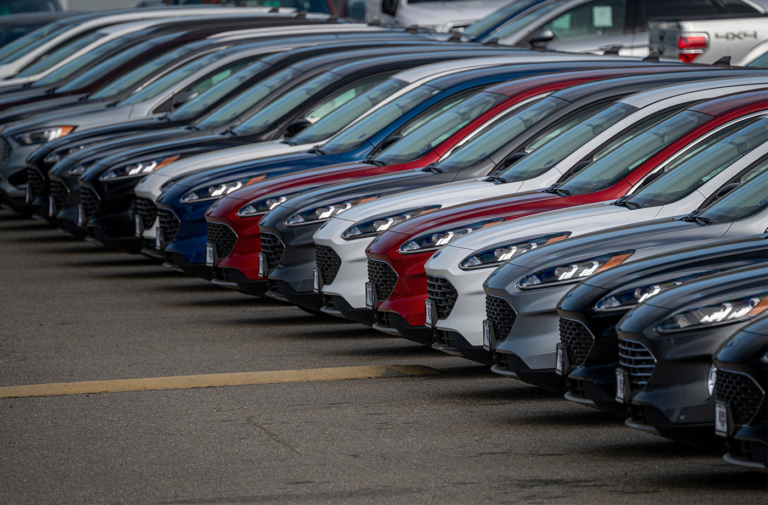resident of the Trinidad and Tobago Automotive Dealers Association (TTADA), Visham Babwah, said Finance Minister Colm Imbert is misleading the population regarding the number of used cars on the nation’s roads.
Babwah told Loop News that he was startled at the rapid passage of legislation regarding the removal of tax breaks for electric cars and the change in the age of imported vehicles to three years, which he said would have severe ramifications for all citizens seeking affordably priced vehicles in 2021.
He is also asking about the promised cap on quotas for new franchise dealers:
‘Government has gone through the changes in Budget dealing with the foreign used car dealers very expeditiously at warp speed. Although they said they would deal with new car dealers putting a quota on them as well, we have heard nothing.’
‘The Minister said it was stated that the automotive sector uses the highest amount of foreign exchange, however the highest drain on foreign exchange is actually credit card users.’
‘He is deliberately misleading the public to make them think that car dealers are using the most foreign exchange.’
Babwah added that the number of cars on the road is far less than the stated one million cars referred to by the Minister.
‘The Finance Minister continues to mislead the population and give false information – the statement that there are over one million cars on the roads of Trinidad and Tobago, this is false.’
‘If you calculate the cars registered since inception up to today, that would work up to be a little over a million cars, but all of these cars are not running on the roads. More than half of them have turned to scrap or stopped running. We only have about 500,000 cars on the road right now.’
‘Licensing has no way and no law stating that when a car is scrapped or destroyed or stolen, that it would be removed from the system. He is misleading the population. For the most experienced politician, he should know better. Do not mislead the population.’
He added that the numbers stated for new franchise dealers were not clear:
‘[Imbert] said the number of vehicles imported was 24,000 for the year. Out of that, 8,800 were foreign used cars and 10,000 were new cars. Then they had around 4,000 commercial vehicles. Commercial vehicles would include high-end vehicles.’
Babwah said the figures for the importation of commercial vehicles were left out: ‘The commercial vehicles and others he did not give a figure for, only new franchises are allowed to deal with those cars, he left that out deliberately to make the figure look smaller.’
‘We are calling now for him to declare the amount of USD that is being used to import commercial and other types of vehicles that he didn’t give a figure on.’
Babwah said they would like this information from the Central Bank.
Babwah added that Trade Minister Paula Gopee-Scoon did not specify between registered importers and personal importers, which was another form of obfuscation:
‘The Trade Minister said she would separate the used car dealers…we have two sets, the registered importers and personal importers (who have a license to import for themselves).
‘They lumped the two into one but we must get a separate figure for each. The personal importers, in my view, imported more cars than the dealers. We need to get these figures clarified from the Trade Minister, she promised to provide that and never did.’
Attempts to monopolise the automobile industry?
Babwah said these statements are trying to ‘demonise’ the used car industry, which he said provides a vital service for lower-income families needing vehicles.
‘They are demonising the used car industry. This is a diabolic plot to destroy the used car industry and allow new franchise dealers to monopolise the industry.’
‘The Minister is doing this to protect the new franchise dealers and channel the forex to these big conglomerates’
‘Throughout the world, governments are trying to keep people employed. This government, however, will shut down car dealerships and all the businesses that complement the industry. It will cause small and medium-sized businesses to shut down. It will put citizens on the breadline, causing them to go into poverty.’
‘We are still in a pandemic where we had to shut businesses for months. We did not get any special assistance and never asked for any.’
He also asked about the exemptions for public officials:
‘The Prime Minister also stated that the exemption that ministers and officeholders who receive tax exemptions on cars for millions of dollars, that it would be reduced, we have heard nothing. They are still getting millions of dollars in exemptions while they are making the citizens pay higher taxes.’
The Association is calling for government to revisit the legislation by changing the age of imported cars to four years and to maintain tax breaks on electric vehicles.
Babwah said once this legislation is in effect, the ability for families to afford vehicles will become harder:
‘The middle and lower-income earners will suffer. This industry was opened by Basdeo Panday to serve the middle and lower-income citizens and to get away from this monopoly. Other governments have anti-trust laws to prevent monopolies but here they are encouraging it.’












